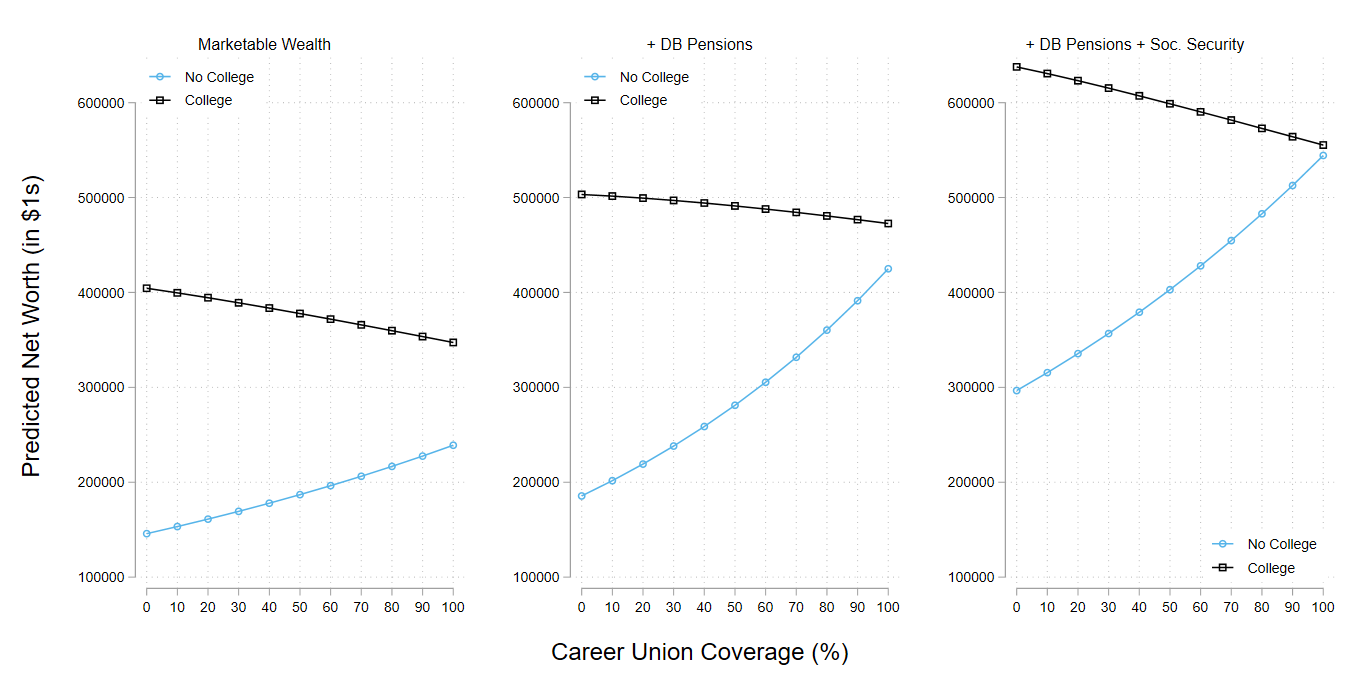
The Wealth Returns to a Unionized Career
Drawing on power resources theory and life course theories of cumulative advantage, this project examines the wealth returns to a unionized career. Using longitudinal data on the working lives of US Baby Boomers and comprehensive measures of wealth at midlife, I find that the average wealth returns to unionized careers are substantial, exceeding $130,000 for marketable wealth. The average returns to a unionized career are even larger when defined benefit pension ($378,000) and Social Security benefits ($361,000) are included in net worth. Higher cumulative lifetime earnings, enhanced job security, and greater access to employer-provided benefits partially account for the wealth returns to unionized careers. The wealth returns to unionized careers are concentrated among men, workers without a college degree, and those who worked in contexts where unions were more powerful. Results support arguments that labor market institutions bolster workers’ financial security by facilitating wealth accumulation. I published findings from this project in Social Forces.